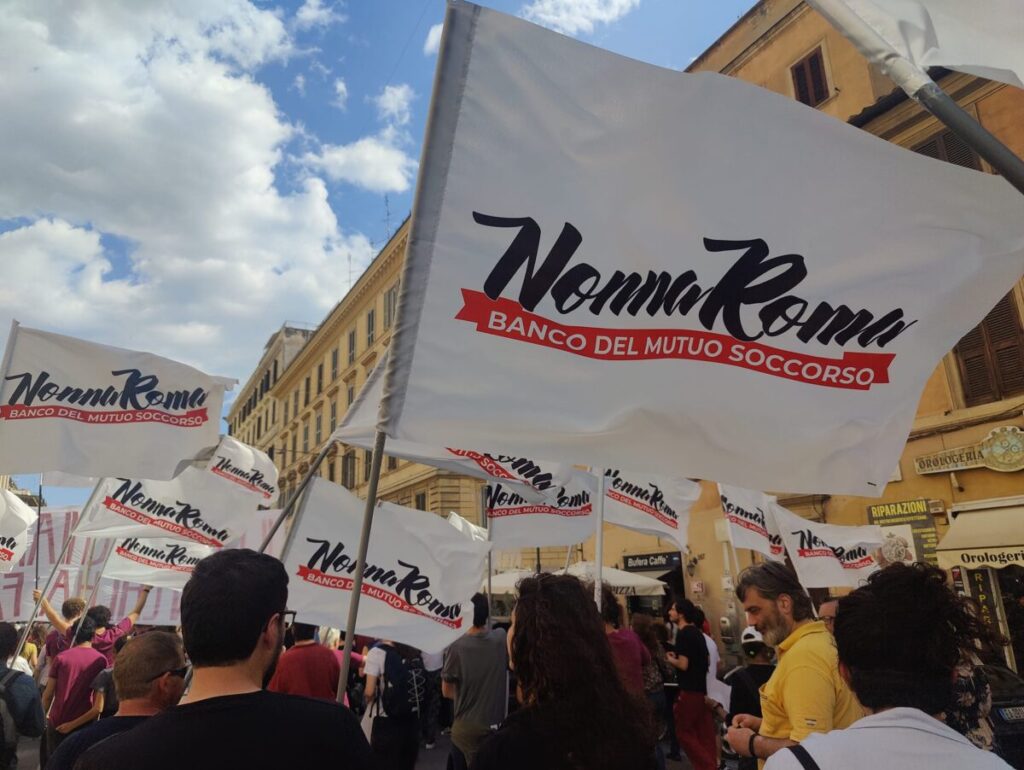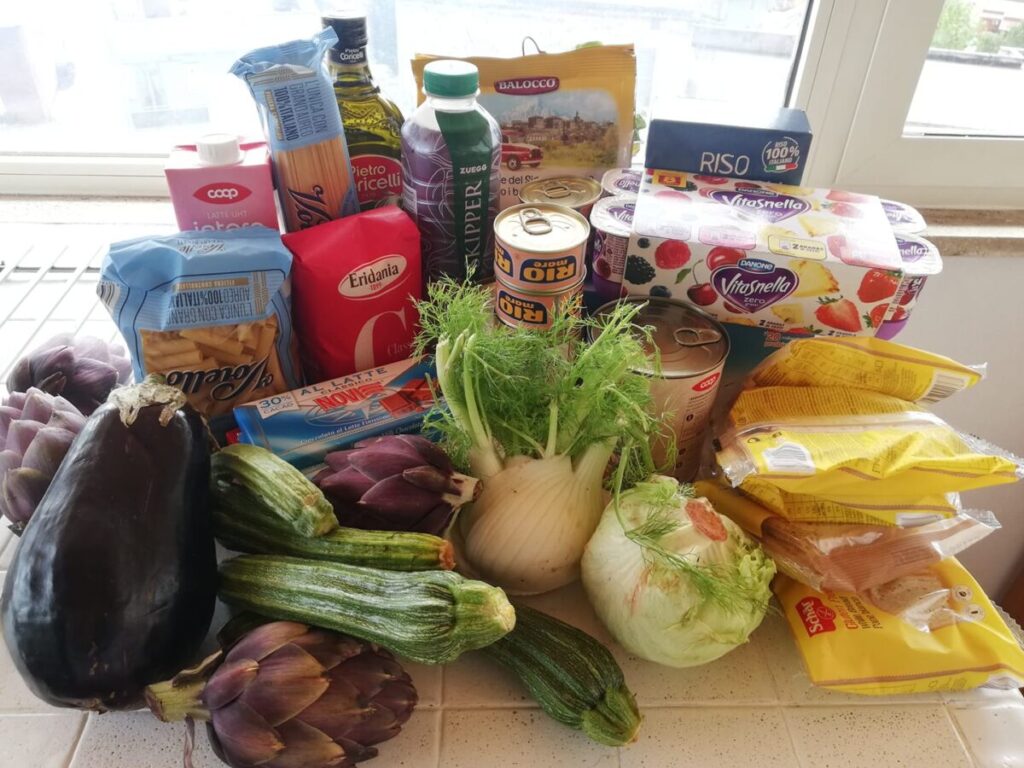In Italy, at least 6 million people over 16 years old (12% of the population) live in food poverty conditions, as revealed by a study conducted by ActionAid and entitled " Frammenti da ricomporre". Particularly, in the capital where 7% of the residents are affected. A context in which the association Nonna Roma is responsible for distributing food and essential products through solidarity grocery stores.
Between 2019 and 2021, the population in severe food insecurity situation has significantly increased, due to economic and social factors worsened by the Covid-19 pandemic. This was further compounded by an increase in food prices, making access to food increasingly challenging. This is especially true in the southern regions of the country, which are the most affected by the price hikes.
In 2021, about 2.9 million people, representing 5.04% of the population, had to resort to food aid, in a context marked by a significant increase in demand (after years of steady decline until 2019). The increase in beneficiaries mainly affected job seekers, but also, significantly, 23.1% of foreigners residing in Italy.
Victim of this crisis, Giancarlo (name changed), 50 years old, originally from Naples, who has been living in Rome for many years with his wife and two daughters. Giancarlo works cleaning statues and monuments. In addition to his salary, he previously benefited from the so-called "reddito di cittadinanza" allowance, allowing people with an income of less than 6000 euros per year to receive a financial supplement from the State. The removal of this allowance in early 2024 has forced many people like him to seek help from associations like Nonna Roma. "Since they removed the reddito di cittadinanza," explains Giancarlo, "the situation has become unbearable. Before, it was already difficult to make ends meet, but without this financial support, my family and I have faced difficulties we had never experienced before."
Some solutions from the nonprofit sector
However, there are support networks within the nonprofit sector that provide for the food needs of the populations in question. Among them, Nonna Roma helps around 2,700 families per year (approximately 12,000 people) in the Roman region, through food distribution points and solidarity grocery stores.
"The association is a mutual solidarity bank, we like to call it that way. It is a volunteer organization created in 2017 with the aim of combating various forms of poverty, starting with food poverty. "To work in a 360-degree manner on the various vulnerabilities that can affect individuals and families," explains Alberto Campailla, president of the organization Nonna Roma."

“So, starting from a food parcel, continues Alberto Campailla, the association builds around the individual requesting support, a series of services and concrete answers. Guaranteeing the right to live in a house for those who cannot pay rent through the anti-eviction counters (listening points to help people at risk of losing their housing), or even a psychological counseling service are part of the aid offered to each beneficiary. Lastly, the ‘la matita sospesa’ project for homework help for children allows us to provide not only basic necessities, but also textbooks, notebooks, and planners for the school year ahead.”
Solidarity Stores
The main tool with which Nonna Roma supports families is through solidarity grocery stores. Throughout Italy, these shops are positioned as an innovative model of social assistance to combat food poverty. "Beneficiaries can shop for free using the association's membership card. Families no longer passively receive a pre-filled food parcel, but have the opportunity to choose what they want based on their food preferences," explains Alberto Campailla. They access the service through a kind of points card, allocated each month based on the family's level of needs.
Apart from the association, there is also a suspended shopping system called "spesa sospesa". This initiative involves customers buying food products in stores or supermarkets and leaving them anonymously for those in need who can take them.
Rediscover the conviviality of grocery shopping
There are several ways to contact Nonna Roma: through social workers who talk about it, or by word of mouth. The idea behind these grocery stores is also to create a welcoming environment, almost a small community. "This approach represents a step forward towards the self-determination of individuals," continues the president of Nonna Roma, "because it allows them to become active players in their own story."
Four solidarity grocery stores where it is possible to shop for free are scattered throughout the territory of the Capital: the Social Market Ferraioli, located on via degli Equi and the Social Market Jerry Masslo, located on via Carlo Cattaneo, in the Esquilino district. The Emporio Togliatti on Viale Palmiro Togliatti in Rome is in the Quarticciolo district, and finally, the last one, in Primavalle, west of Rome, on Largo Flanagan Edoardo Giuseppe.
The organization also has sites where it is possible to ask for help: they are located both in central neighborhoods like San Lorenzo, and in peripheral neighborhoods like Tor Bella Monaca and Tufello. For their supply of fresh fruits and vegetables to the grocery stores, Nonna Roma collaborates with Banco Alimentare Nazionale. And with the association Casa Famiglia Lodovico Pavoni.
Among the people who frequent grocery stores, there are those who meet and recognize each other every week, share stories, talk about their experiences, give and receive advice, thus turning the place into a friendly environment. Giancarlo has improved his daily life thanks to social workers and the help of Nonna Roma: "The difficulties have not disappeared," he says. "But today, I can put a hot meal on the table for my family. I no longer feel alone, I have found a support network. I have learned to be grateful for what I have," he concludes, holding his grocery bag.

